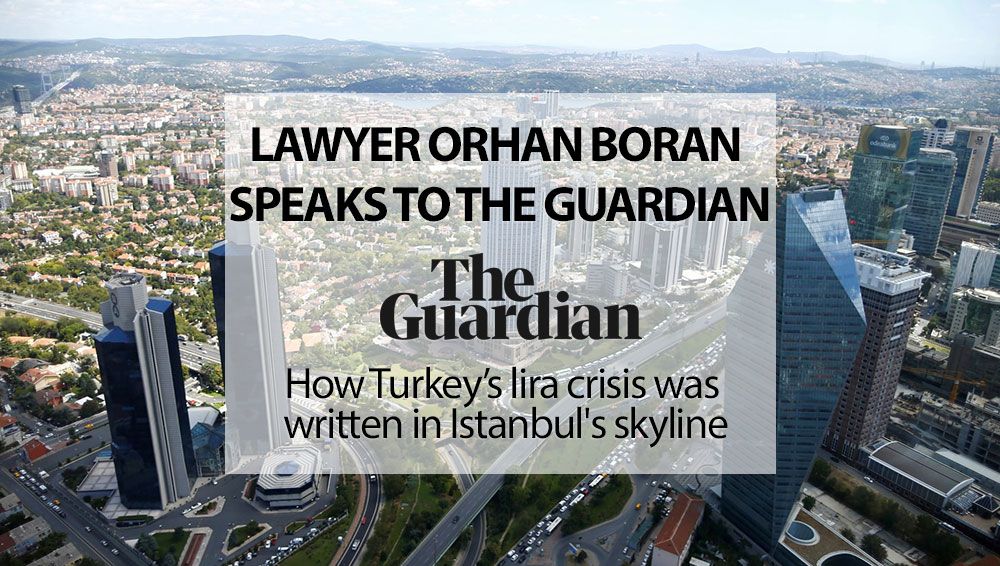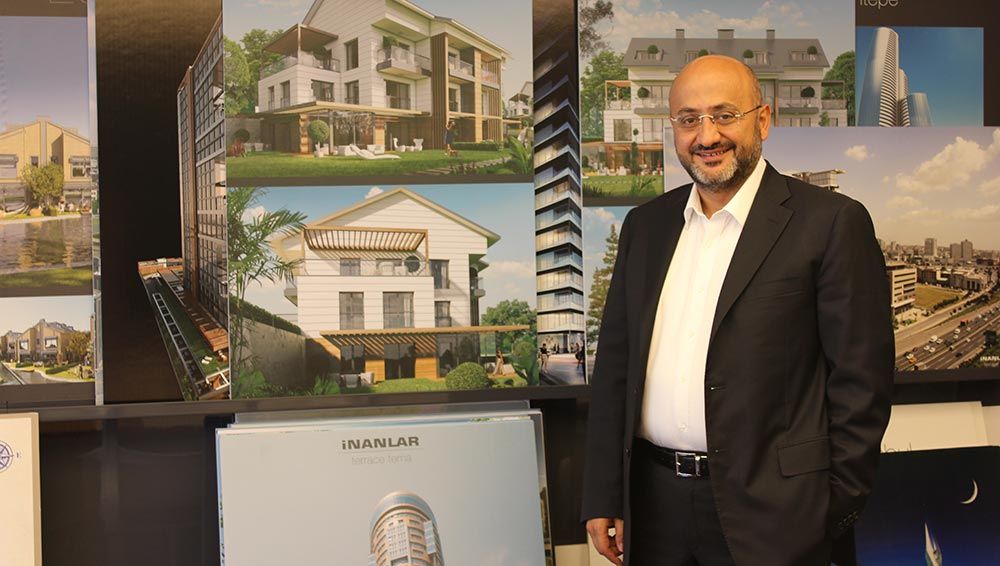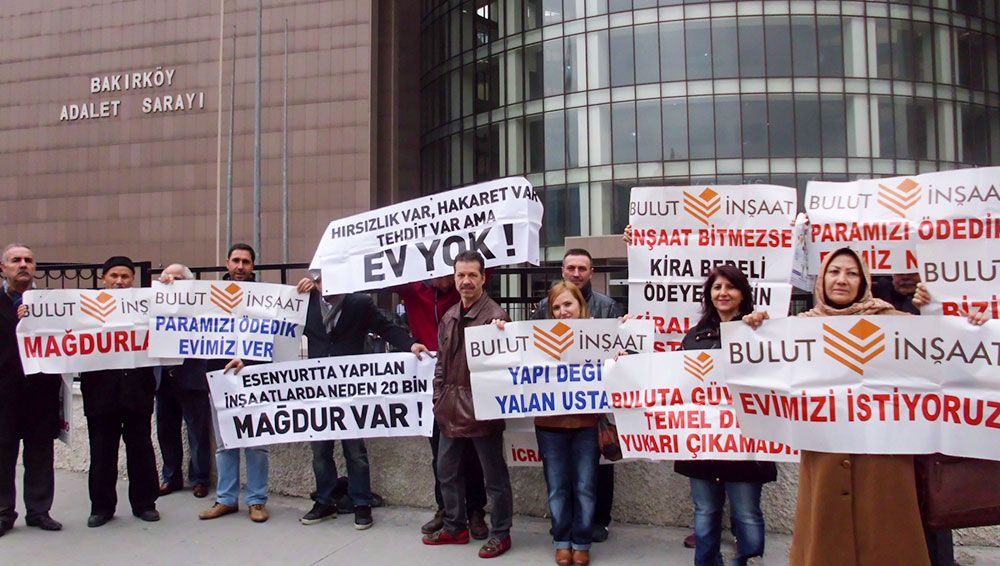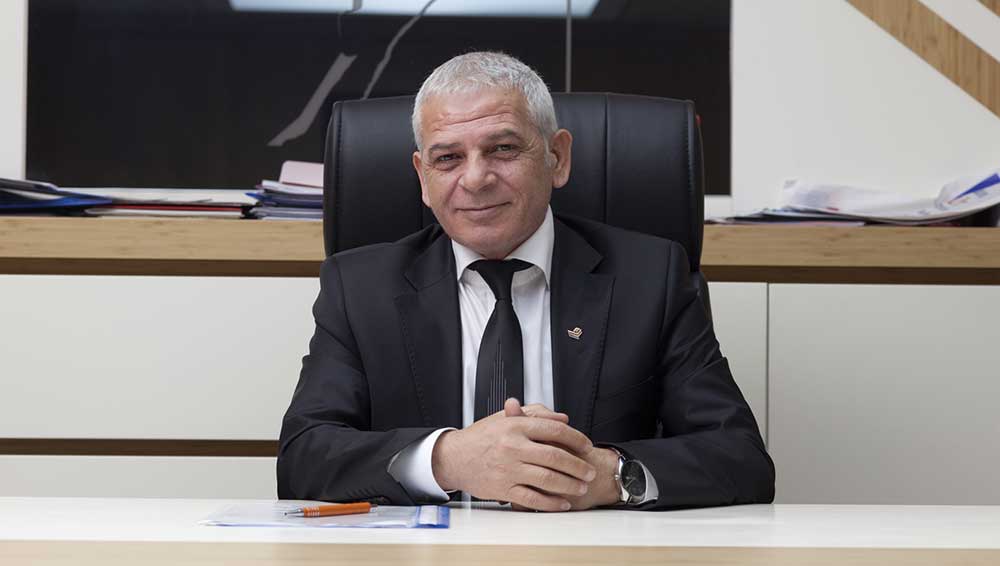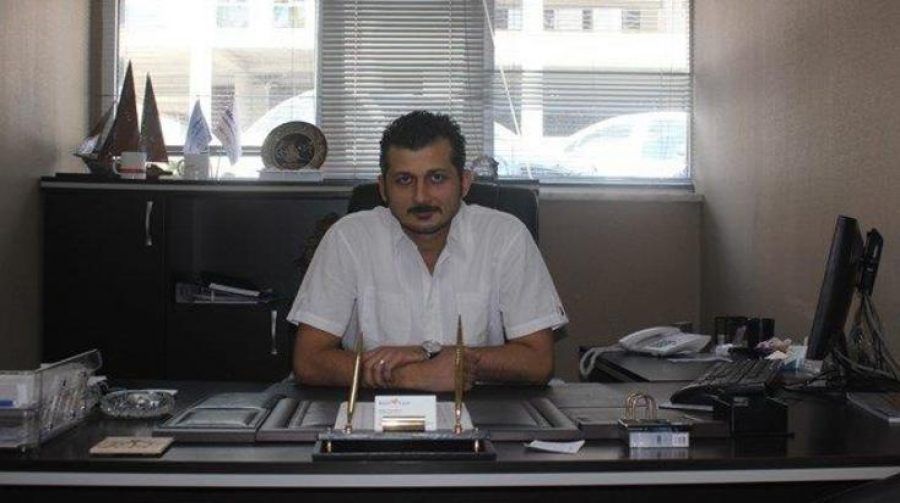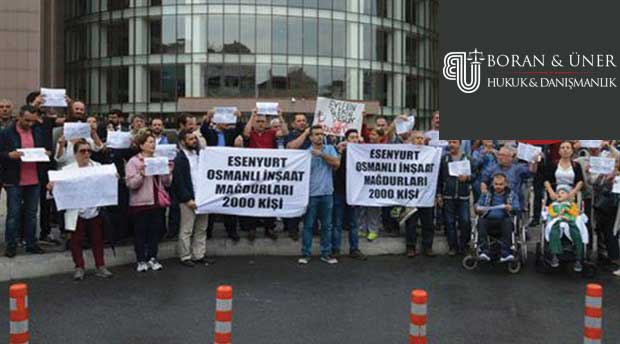Those observing Istanbul’s construction boom will not have been surprised by last week’s currency collapse – it’s all based on debt
“We’ve seen this problem for many years now that, people sell apartments to customers and they never end up being able to build those things,” said Orhan Boran, a lawyer in Istanbul representing hundreds of clients who claim to have been swindled by construction firms. Social media is littered with what Boran calls “construction victims” groups: middle-class homebuyers who organise online and hold protests across the country to bring attention to their plight.
From a distance, Esenyurt, a newly built up neighbourhood on the edges of Istanbul, looks a bit like Hong Kong or Dubai, with a bustling downtown of shiny skyscrapers. Upon closer examination, however, you notice that tower after tower stands incomplete, lacking windows or furnishings; others are only half-occupied, their windows dark after nightfall.
“In the residential areas, 100% of the construction has stopped,” says Mohamed Karman, a local estate agent, from his small office in the central square of Esenyurt. “Do you know why? The materials. Everything is in dollars, you pay in dollars.”
The crash of the Turkish lira last week after two years of steady decline spooked global markets – but anyone looking at Istanbul’s skyline would have been far from surprised. Everywhere you look in the city, evidence of a debt-fuelled construction boom abounds: new skyscrapers frame the horizon, huge shopping malls dot the streets and among several mega projects is a new airport, set to be the world’s largest.
Funding for this construction frenzy has been at the heart of Turkey’s economy, accounting for up to 20% of the country’s GDP growth in recent years, and employing around two million people. In a parallel to the 2008 financial crash, the boom was funded by low-interest loans and ballooning debt. Property developers funded their buildings with cheap loans in foreign currencies – and will be struck particularly hard by the lira’s collapse, as those loans grow harder to repay every day. According to government statistics, at the end of 2016 nearly 90% of the credit in Turkish real estate companies came from loans in foreign currencies.
The currency crash was triggered by a spat with the US government over Turkey’s ongoing imprisonment of the American pastor Andrew Brunson, who is accused of involvement with a 2016 coup attempt. But the Turkish economy has been in slow-motion decline for a while, with the lira sliding steadily downhill since 2016.
“Turkey is a country trying to reach a high growth rate but not having enough foreign capital to reach that,” says Nihat Bulent Gultekin, former governor of Turkey’s Central Bank and a finance professor at the Wharton School at the University of Pennsylvania. “Unless they export from time to time, they run into a crisis. It happens every 10 years.”
The construction industry is a prime example of that dependence. Much of its capital comes from loans denominated in foreign currency. The Istanbul Sapphire – one of the tallest buildings in Europe when completed in 2011 – was financed through loans worth 164m lira in 2013, 154m of which was in US dollars. That loan would now cost around 539m lira.
Turkey is also heavily reliant on imports for construction materials: it is the world’s ninth largest importer of steel, paying $8bn in 2016, a figure that rose to $9bn in 2017 as the lira began to fall.
That makes the Turkish economy’s dependence on the construction sector for growth particularly dangerous. In the third quarter of 2017, construction made up 18.7% of the economy. This over-reliance on an industry that is so sensitive to global downturns has long been criticised by Turkish economists.
“A country is not really any different from personal finance,” Gultekin says. “If you borrow money to splurge, there comes a point when the creditors will come after you. When it’s all done with foreign capital, someone has to pay eventually.”
The construction boom reached its height in 2013 and 2014, as Turkish banks issued low-interest loans, malls blossomed and new buildings clustered: 69 skyscrapers taller than 100 meters have been built in Istanbul alone since 2008. On top of that are the mega projects: suspension bridges, a subway beneath the Bosphorus and the new airport, expected to cost over €10bn. A €5.7bn loan for the airport taken out in 2015 was worth 18bn lira then, and 40bn lira now.
Much of that borrowing was done on the basis of profit margins that never materialised. The top executives of Turkey’s largest construction firms earned big paycheques, many of them benefiting from the light-touch approach the ruling AK Party has taken when it comes to regulation of the industry. Before he was appointed Turkey’s energy minister, and now finance minister, Erdoğan’s son-in-law Berat Albayrak used to be the CEO of Çalik Holding, one of the biggest construction companies in Turkey. Albayrak has been accused of changing tax law to save the company millions of dollars.
“We don’t act on a long-term basis,” said Kajin Bulut, who has worked in senior positions in forecasting and sales for a number of Turkish construction firms. “The longest plan I saw in a Turkish company was two months … That was the main problem.”
Up to half the buyers of luxury properties built by companies such as Kiler Holding were expected to be wealthy investors from Gulf countries, Bulut said, especially after 2012 when legal barriers to foreign ownership were lifted. But the demand from the Gulf failed to rise to the level hoped for by Turkish real estate developers. Now the lack of demand, alongside rising costs for iron and steel, has caused many projects to stall.
The problem also affects many ordinary Turks who paid for new apartments upfront – apartments that are now on permanent hold because the companies say they can’t afford to build them.
“We’ve seen this problem for many years now that, people sell apartments to customers and they never end up being able to build those things,” said Orhan Boran, a lawyer in Istanbul representing hundreds of clients who claim to have been swindled by construction firms. Social media is littered with what Boran calls “construction victims” groups: middle-class homebuyers who organise online and hold protests across the country to bring attention to their plight.
The chain of parties involved in the construction sector is long, from construction firms to housebuilders to homebuyers – with everyone paid in lira.
“The construction sector is like the head of a train,” said Bulut. “If it goes, the whole country goes.”



